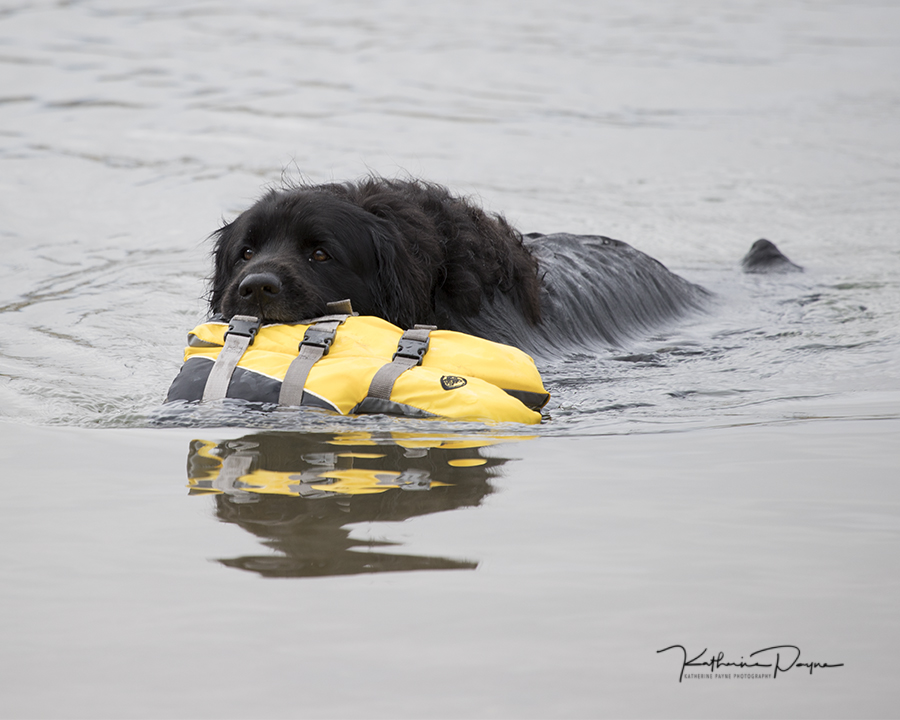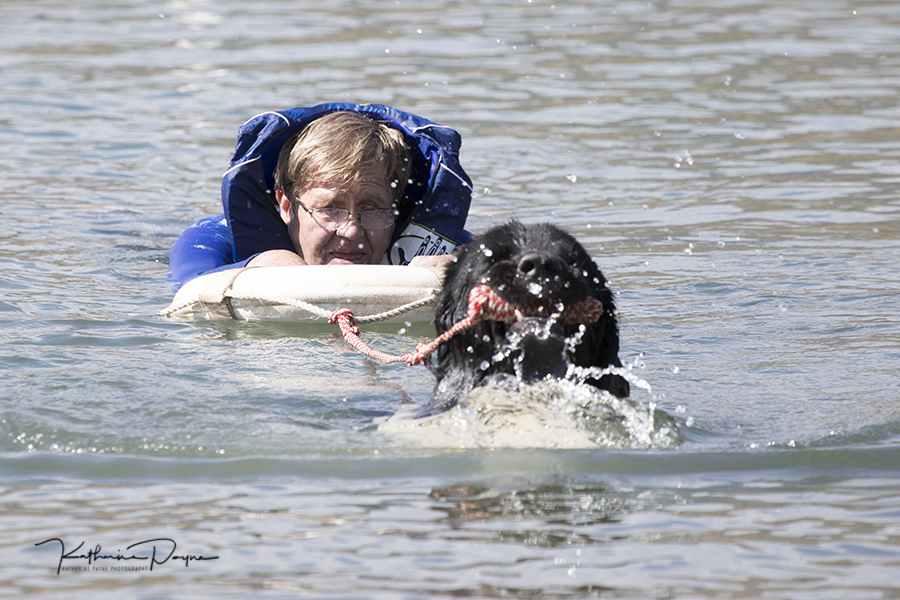119 – Heroic Newfoundland Dogs: Water Rescue with Lou Ann Lenner and Sue Raney
Heroic Newfoundland Dogs – Saviors of Seafarer and Fishermen
Every Christmas season brings to memory the heroic rescue of the 90 passengers and crew of the S.S. Ethie by a stalwart Newfoundland…It was more than 50 years ago, during a blizzard, that the Ethie was wrecked off the coast of Bonne Bay, Newfoundland. No boat could be launched on that stony shore during such a raging storm. There were more than 100 souls utterly helpless within sight of land.
All of them would have been lost and many would have been mourning families that Christmas, had not a Newfoundland and its owner appeared on the nearby shore. The dog went to the rescue upon an order from its master. The Newfoundland swam out through a sea in which no man could possibly have survived. The powerful dog made it to the ship and carried a lifeline back to shore. With this a buoy was rigged and all hands saved. Among the rescued passengers from the Ethie was an infant in a mail bag.” From The New Complete Newfoundland, Margaret Booth Chern, 1975
Developed in the eponymous islands off the east coast of Canada, the Newfoundland is an outstanding water dog. The dogs worked on fishing boats in the rugged, icy, stormy seas around their home island. While exact details of the progenitors of the breed are lost to history, written descriptions and paintings date back to the 1700s. Famed poet Emily Dickinson owned a Newfoundland and, of course, Sir Edwin Henry Landseer painted the breed frequently. In fact, the black and white color of the dog is known as a “Landseer” Newfoundland.
“Seamen” the Newfoundland Dog of Capt. Meriweather Lewis
Amongst the breed’s most well-known individuals is Seaman, Captain Meriweather Lewis’ dog, who accompanied President Thomas Jefferson’s exploration group during their rugged, three-year journey across what is now the United States in the early 1800s. Seaman was mentioned repeatedly in the journals of the Expedition, including saving the camp from a rampaging buffalo and retrieving game shot or wounded by the expedition’s hunters.
Today, the breed serves as a living embodiment of the culture of ships and fishing villages in Newfoundland. Proper coat and soundness are critical.
Lou Ann Lenner – Sun Valley Newfoundland Dogs
Our first guest Lou Ann Lenner, Sun Valley Newfoundlands, is a breeder of National and Regional specialty winners since 1977, with four generations of homebred ROM dogs.
According to Lou Ann, she always has bred to type, line breeding consistently, incorporating primarily Pouch Cove blood lines. Health can be a challenge as are the cycles in the quality of the breed. Long-term breeders *recognize* when quality is slipping and “step up” to get the breed back on track.
Maintaining type while managing health issues in the breed, specifically orthopedic problems associated with giant breed dogs and cardiac concerns is a primary concern. Lou Ann keeps only bitches in her kennel and reaches out for stud dogs to incorporate into the breeding program. Her top three qualities to when seeking a stud dog are balance, soundness, and a complementary pedigree.
She observes that the best home for a Newfoundland is someone who is committed to grooming and familiar with the breed. On a personal note, she only places puppies with owners who have someone to be home with the dog consistently.
Lou Ann strongly recommends learning about what’s behind your dog in terms of dogs in a pedigree, and honestly sharing what you know with new folks.
Sue Raney – Sweetbay Newfoundland Dogs and Water Rescue Work
Sue Raney, our second guest, is a Newfoundland fancier who has spent 25 years working dogs in water rescue work.
“The dogs have an amazing ability to be companions in water in a way no other breed does. They are just joyful to be around,” Sue said.
She notes that in a form follows function capacity, a dog’s effortless, fluid motion in the ring, translates to a powerful swimming stroke in the water. She also reminds people that the correct coat protects the dog in its native frigid water. The standard describes the coat as “flat, water-resistant, double coat that tends to fall back into place when rubbed against the nap. The outer coat is coarse, moderately long, and full, either straight or with a wave. The undercoat is soft and dense,…”
Titles with Meaning
The fascinating work the dogs do to earn titles through the national breed club includes water rescue exercises that demonstrate the breed’s heritage…. saving people, and saving “things” that have fallen overboard.
Sue says she encourages owners to become involved with regional breed clubs. Her enthusiasm for the work these dogs do is infectious!
Grooming Tip Of the Week with Allison Foley
Right Tools for the Job – Brushes
- Brushes: Pin brushes are different lengths. Think about what you are doing – the longer the hair, the longer the pin.
- Take good care of your brushes – preserve the pins. Bent or broken pins rip or break hair. Keep the brush in a box to protect it.
- Don’t put them in the top of your tack box and close the lid!
- Keep clean hair and product brushes separate. Mark your brush so you don’t put product residue onto a clean coat.


